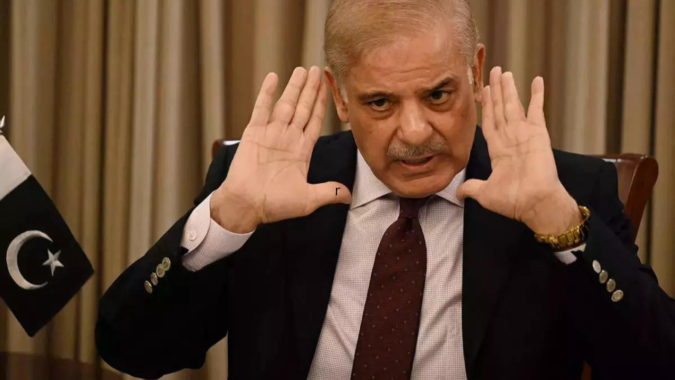ISLAMABAD: Pakistan’s parliament Sunday approved the budget for the new fiscal year starting next month, a day after the government made several changes to meet stiff conditions dictated by the International Monetary Fund (IMF).
Fighting tooth and nail to revive a stalled IMF lending programme and rescue the flailing economy, the government introduced additional taxes along with cuts in public spending to shrink the deficit.
The budget was passed during a National Assembly session that lacked quorum, with only 70 lawmakers on the treasury benches and two opposition MPs present in the 342-member house. Foreign minister Bilawal Bhutto-Zardari and his father Asif Ali Zardari, key governing coalition figures, were among the absentees.
Finance minister Ishaq Dar defended the nine amendments in the 2023-24 finance bill (budget). Pakistan will raise Rs 215 (Rs 21,500 crore) billion through new taxes to meet the IMF riders, Dar said, adding this will not burden the poor and middle segments.
Running expenditure will be pruned by Rs 85 billion (Rs 8,500 crore), which would have no impact on the proposed development budget, raise in salaries and pensions of federal government employees, Dar said.
Dar said the government had held talks with the Washington-based IMF with complete sincerity . He assured Parliament that once the wrinkles with the IMF were ironed out, all details would be made public by placing the agreement on the finance ministry’s website.
The amendments followed meetings PM Shehbaz Sharif held with IMF managing director Kristalina Georgieva in Paris last week.
Local media reported on Sunday that Sharif met Georgieva a third time in Paris, reaffirming cash-strapped Pakistan’s commitment to fulfilling the loan riders. The Extended Fund Facility (EFF), agreed in 2019, expires June 30.
Pakistan has been trying to secure $1.2 billion of funding stalled since last October as part of a larger $6.7-billion IMF bailout programme.
Fighting tooth and nail to revive a stalled IMF lending programme and rescue the flailing economy, the government introduced additional taxes along with cuts in public spending to shrink the deficit.
The budget was passed during a National Assembly session that lacked quorum, with only 70 lawmakers on the treasury benches and two opposition MPs present in the 342-member house. Foreign minister Bilawal Bhutto-Zardari and his father Asif Ali Zardari, key governing coalition figures, were among the absentees.
Finance minister Ishaq Dar defended the nine amendments in the 2023-24 finance bill (budget). Pakistan will raise Rs 215 (Rs 21,500 crore) billion through new taxes to meet the IMF riders, Dar said, adding this will not burden the poor and middle segments.
Running expenditure will be pruned by Rs 85 billion (Rs 8,500 crore), which would have no impact on the proposed development budget, raise in salaries and pensions of federal government employees, Dar said.
Dar said the government had held talks with the Washington-based IMF with complete sincerity . He assured Parliament that once the wrinkles with the IMF were ironed out, all details would be made public by placing the agreement on the finance ministry’s website.
The amendments followed meetings PM Shehbaz Sharif held with IMF managing director Kristalina Georgieva in Paris last week.
Local media reported on Sunday that Sharif met Georgieva a third time in Paris, reaffirming cash-strapped Pakistan’s commitment to fulfilling the loan riders. The Extended Fund Facility (EFF), agreed in 2019, expires June 30.
Pakistan has been trying to secure $1.2 billion of funding stalled since last October as part of a larger $6.7-billion IMF bailout programme.
